Traveling abroad can be an incredible adventure, but it’s essential to prioritize safety. As you journey beyond the borders of the United States, ensuring your well-being is crucial. In collaboration with the U.S. Department of State, we’ve compiled essential safety tips to guide you through your travels. From protecting yourself against infectious diseases to staying informed about potential risks, we’ve got you covered. So, before you embark on your next international trip, equip yourself with the knowledge and precautions necessary to explore foreign countries safely and confidently.
1. Research Your Destination Before You Go

Before embarking on your journey, it’s essential to conduct thorough research about your destination. Familiarize yourself with the local culture, customs, and laws to ensure a respectful and safe experience. Here are some key points to consider:
Understand the Local Laws and Customs
Each country has its own set of laws and customs that visitors are expected to abide by. Research the local laws and customs of your destination to avoid any unintentional violations that could lead to legal complications. Pay attention to cultural norms, dress codes, and appropriate behavior in public places. Being aware of and respecting local customs will help you avoid unnecessary misunderstandings or conflicts.
Be Aware of Dangerous Situations
Certain destinations may have higher crime rates or safety concerns. Research the safety situation in your chosen location, including any areas to avoid or specific precautions to take. Stay informed about recent events and incidents that could impact your safety. Check for travel advisories and warnings issued by your country’s government to make informed decisions about your travel plans.
Know the Local Language
Learning a few basic phrases in the local language can go a long way in facilitating communication and building rapport with locals. Simple greetings, thank you’s, and polite phrases can help you navigate daily interactions more smoothly. Consider carrying a pocket-sized language guide or using language learning apps to enhance your communication skills.
2. Secure Your Travel Documents
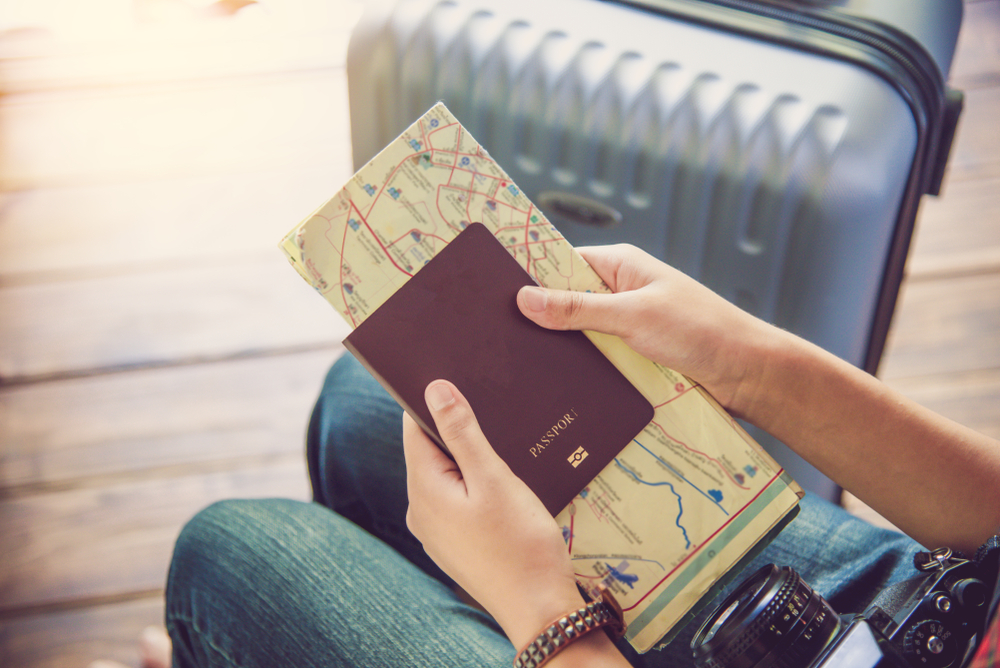
Your travel documents are some of the most crucial items you’ll carry with you while traveling abroad. Ensuring their security and accessibility is paramount. Follow these tips to safeguard your travel documents:
Make Copies of Important Documents
Before you depart, make multiple copies of your passport, visa, travel insurance documents, and any other essential identification papers. Keep one set of copies separate from the originals while traveling and leave another set at home with a trusted family member or friend. In case your documents are lost or stolen, having copies will expedite the process of obtaining replacements.
Keep Your Original Documents in a Safe Place
While traveling, it’s essential to keep your original travel documents secure. Invest in a reliable travel document organizer or a secure pouch that can be worn discreetly under your clothing. Avoid keeping your passport or other valuable documents in easily accessible locations, such as back pockets or open bags.
Register with the Nearest U.S. Embassy or Consulate
Before you depart, consider registering with the nearest U.S. Embassy or Consulate through the Smart Traveler Enrollment Program (STEP). This free service provided by the U.S. Department of State allows them to better assist you in case of emergencies, such as natural disasters or civil unrest, and keep you informed about safety updates at your destination.
3. Stay Informed About Travel Advisories
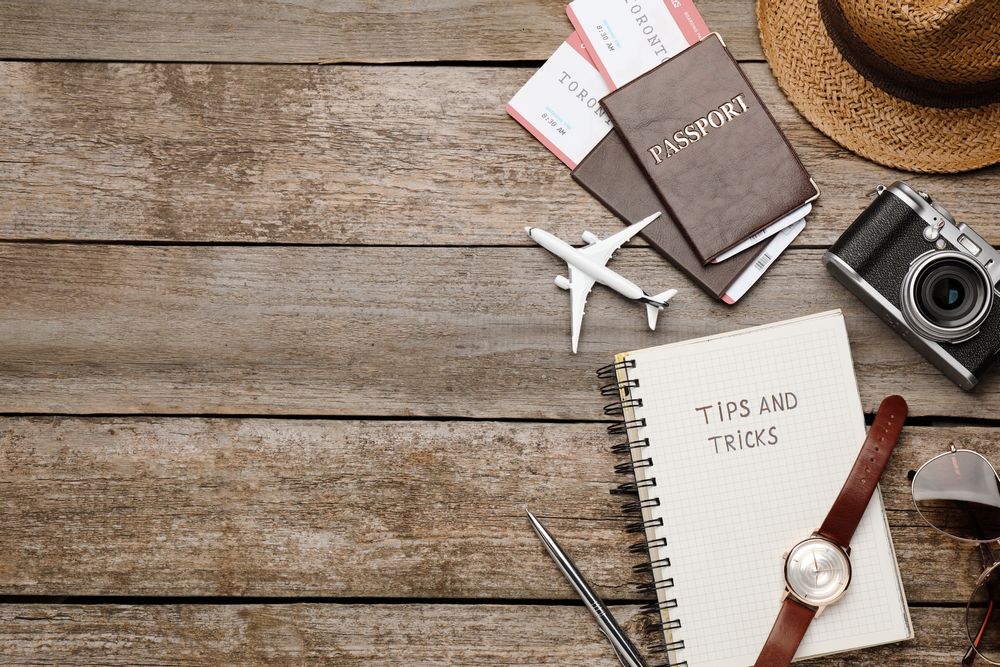
Travel advisories are essential resources that provide valuable information about the safety and security situation in different countries. Stay updated on travel advisories issued by your country’s government, such as the U.S. Department of State’s travel advisories. These advisories categorize countries into different levels of risk and provide specific safety recommendations.
Be Prepared for Changing Situations
Travel advisories can change based on evolving circumstances, such as political unrest, natural disasters, or health emergencies. Stay informed and flexible with your travel plans, and be prepared to adjust or postpone your trip if necessary. Regularly check for updates and guidance from official sources to make informed decisions about your travel.
Register Your Travel Itinerary
Consider sharing your travel itinerary with a family member or friend. Provide them with details about your flights, accommodations, and contact information. In case of an emergency or unexpected situation, they will have a better understanding of your whereabouts and can assist you or communicate with authorities if needed.
4. Take Care of Your Health

Maintaining good health while traveling abroad is crucial for a safe and enjoyable experience. Follow these tips to prioritize your well-being:
Visit a Travel Clinic or Doctor
Before traveling, schedule a visit to a travel clinic or your healthcare provider who specializes in travel medicine. They can provide you with necessary vaccinations, medications, and health advice specific to your destination. Some countries may have specific health requirements, such as proof of vaccination, so ensure you are up to date with any necessary immunizations.
Pack a First Aid Kit
Carrying a well-stocked first aid kit is essential for minor injuries and illnesses that may occur during your trip. Include items such as adhesive bandages, antiseptic wipes, pain relievers, diarrhea medication, and any prescription medications you regularly take. Familiarize yourself with the contents of your kit and how to use them appropriately.
Practice Food and Water Safety
Food and waterborne illnesses can put a damper on your trip. Take precautions to ensure the safety of what you consume:
- Stick to bottled or filtered water and avoid drinking tap water unless it has been deemed safe.
- Be cautious when consuming street food, ensuring it is freshly prepared and cooked thoroughly.
- Wash your hands frequently with soap and water, especially before eating or handling food.
- Use hand sanitizers or alcohol-based wipes when soap and water are not readily available.
Protect Yourself from Insect-Borne Diseases
Insect bites can lead to various diseases such as malaria, dengue fever, Zika virus, and more. Protect yourself by:
- Using insect repellents that contain at least 20% DEET on exposed skin and clothing.
- Wearing long sleeves, pants, and socks to minimize exposed skin.
- Sleeping in accommodations with proper screens or mosquito nets.
- Taking necessary precautions to prevent tick bites if you are traveling to areas with tick-borne diseases.
5. Stay Connected and Share Your Itinerary

Maintaining communication and sharing your travel plans with trusted individuals can enhance your safety and provide peace of mind. Follow these guidelines:
Stay Connected with Loved Ones
Keep your family and friends informed about your travel plans and share regular updates with them. Establish a communication plan and let them know how frequently you will be in touch. Share your contact information, including phone numbers, email addresses, and social media accounts, with trusted individuals.
Use Local Emergency Contact Information
Research and save emergency contact numbers specific to your destination, including local police, ambulance services, and the nearest U.S. embassy or consulate. Having these numbers readily available can be crucial in case of emergencies or when seeking assistance.
Register with the Smart Traveler Enrollment Program (STEP)
Enroll in the Smart Traveler Enrollment Program (STEP) offered by the U.S. Department of State. This free service allows you to register your trip and contact information with the nearest U.S. embassy or consulate. In case of a natural disaster, civil unrest, or family emergency, the embassy can reach out to you and provide assistance.
Share Your Itinerary and Contact Information
Provide a trusted family member or friend with a detailed itinerary of your travel plans, including flight details, accommodation information, and any planned activities. Regularly update them with any changes to your plans. In case of an emergency, they will have essential information to assist you or communicate with authorities.
6. Ensure Financial Security

Protecting your financial resources and having access to funds are important aspects of traveling abroad. Follow these tips to ensure financial security:
Notify Your Bank and Credit Card Companies
Before traveling, inform your bank and credit card companies about your upcoming trip. This will prevent them from flagging your transactions as suspicious activity while you are abroad. Provide them with your travel dates and destinations to ensure uninterrupted access to your funds.
Carry Multiple Forms of Payment
It’s wise to carry multiple forms of payment, such as credit cards, debit cards, and cash, while traveling abroad. Keep them securely stored in separate locations, such as a money belt, wallet, or hidden pockets, to minimize the risk of loss or theft. Avoid carrying large amounts of cash and be cautious when using ATMs in unfamiliar locations.
Research Local Currency and Exchange Rates
Familiarize yourself with the local currency of your destination and research current exchange rates. This will help you make informed decisions when exchanging money and prevent you from falling victim to scams or unfair exchange rates. Consider exchanging a small amount of currency before you depart to have cash on hand upon arrival.
Keep Copies of Important Financial Documents
Make copies of your credit cards, bank cards, and any other financial documents you’ll be carrying. Store these copies in a secure location separate from the originals. In case of loss or theft, having copies will facilitate reporting and replacement processes.
7. Be Mindful of Your Surroundings
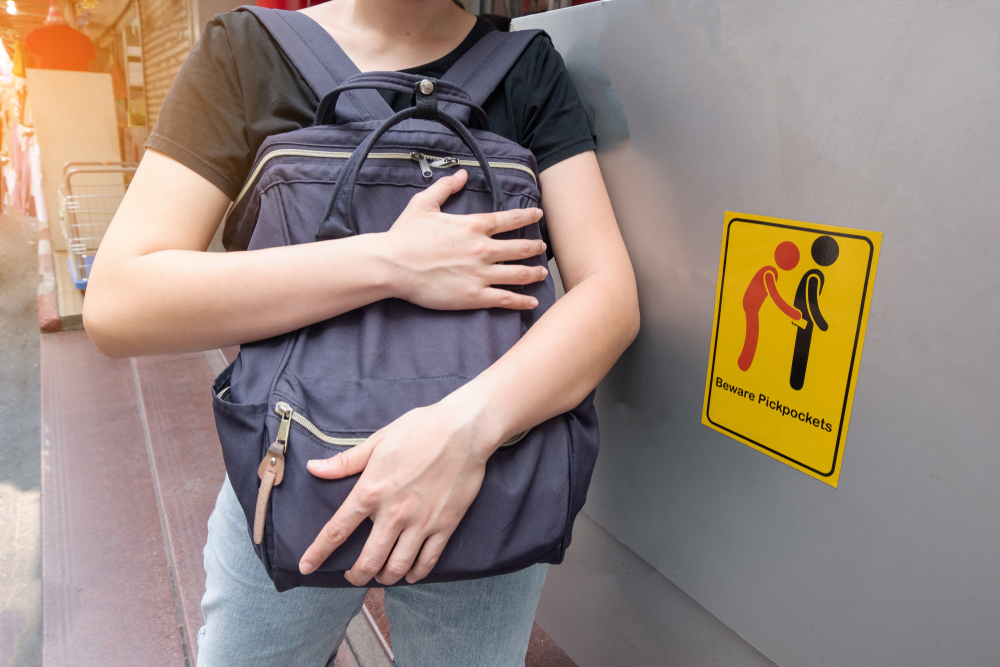
Being aware of your surroundings and practicing situational awareness can significantly enhance your safety while traveling abroad. Here are some tips to help you stay vigilant:
Observe Locals and Blend In
Take cues from the locals and try to blend in as much as possible. Dress appropriately and avoid wearing flashy jewelry or expensive clothing that may attract unwanted attention. By respecting local customs and norms, you can minimize the risk of standing out as a potential target for theft or scams.
Be Cautious in Crowded Places
Crowded places, such as markets, tourist attractions, and public transportation, can be potential hotspots for pickpockets and theft. Keep your belongings secure and in sight at all times. Consider using a bag with a strap that goes across your chest and wearing it in front of your body. Avoid keeping valuables in your back pockets.
Trust Your Instincts
Your instincts are powerful tools for assessing potentially risky situations. If something feels off or makes you uncomfortable, trust your gut and remove yourself from the situation. It’s better to err on the side of caution and prioritize your safety.
Stay Alert at Night
When exploring unfamiliar areas at night, it’s essential to exercise caution. Stick to well-lit and populated areas and avoid walking alone whenever possible. If you plan to use public transportation at night, research safe routes and consider traveling with a group or using licensed taxis.
Use Locks and Safes
When staying in accommodations, use the provided locks and safes to secure your valuables. Lock your doors and windows when leaving your room and utilize the hotel safe for storing important documents, cash, and other valuable items. Remember to collect your belongings when you check out.
8. Use Safe Transportation
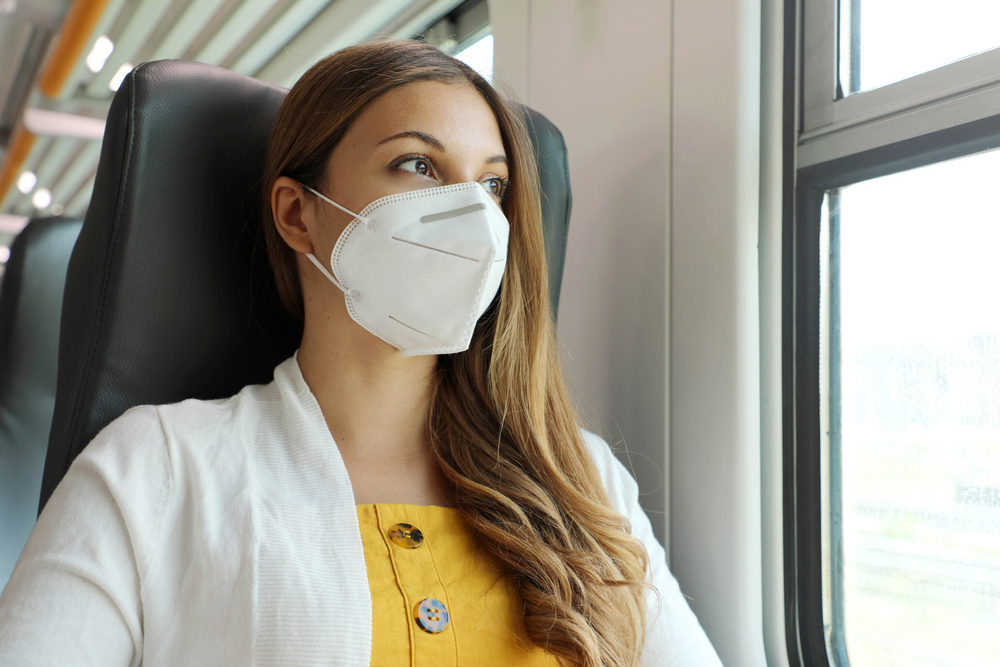
Transportation plays a significant role in ensuring your safety while traveling abroad. Consider the following tips for using safe transportation:
Research Transportation Options
Before your trip, research the available transportation options in your destination country. Understand the safety records of local airlines, trains, buses, and other forms of public transportation. Opt for reputable transportation providers and use licensed taxis or ridesharing services when needed.
Familiarize Yourself with Local Traffic Laws
Traffic laws and regulations can vary significantly from one country to another. Familiarize yourself with the local traffic laws of your destination to ensure your safety as a pedestrian, cyclist, or driver. Avoid driving if you’re unfamiliar with local driving customs or if road conditions are unsafe.
Stay Alert While Using Public Transportation
When using public transportation, remain vigilant and be aware of your surroundings. Keep your belongings secure and within sight at all times. Be cautious of crowded situations, especially during peak travel hours, and avoid displaying valuable items or excessive cash.
Use Seat Belts and Safety Equipment
If you rent a vehicle abroad, ensure that it is equipped with seat belts and functioning safety features. Always wear your seat belt and encourage your fellow passengers to do the same. If you’re traveling on motorcycles or bicycles, wear a helmet to protect yourself from head injuries.
9. Avoid Dangerous Situations

Minimizing exposure to potentially dangerous situations is crucial for your safety while traveling abroad. Consider the following tips to avoid risky scenarios:
Research Local Scams and Common Crimes
Different countries may have specific scams or prevalent crimes targeting tourists. Research common scams and crimes in your destination and familiarize yourself with their tactics. Awareness can help you recognize and avoid potentially dangerous situations.
Stay Away from Political Demonstrations or Protests
Political demonstrations or protests can quickly escalate and become violent. Avoid participating in or being in the vicinity of such gatherings, as they can pose significant risks to your safety. Monitor local news and follow official advice to stay informed about any potential unrest.
Avoid Excessive Alcohol Consumption
Excessive alcohol consumption can impair your judgment and make you more vulnerable to accidents, theft, or assault. Drink responsibly and be mindful of your alcohol intake, especially in unfamiliar surroundings. Avoid accepting drinks from strangers and never leave your drink unattended.
Be Cautious with New Acquaintances
While traveling, you may meet new people and form connections. Exercise caution when interacting with strangers and be mindful of sharing personal information or accepting invitations from individuals you’ve just met. Trust your instincts and prioritize your safety in all social interactions.
Respect Local Wildlife and Nature
If you’re exploring natural areas or wildlife reserves, respect the local environment and wildlife. Observe wildlife from a safe distance and refrain from feeding or approaching them. Follow designated trails and guidelines to prevent accidents or harm to yourself and the ecosystem.
10. Respect Local Culture and Customs
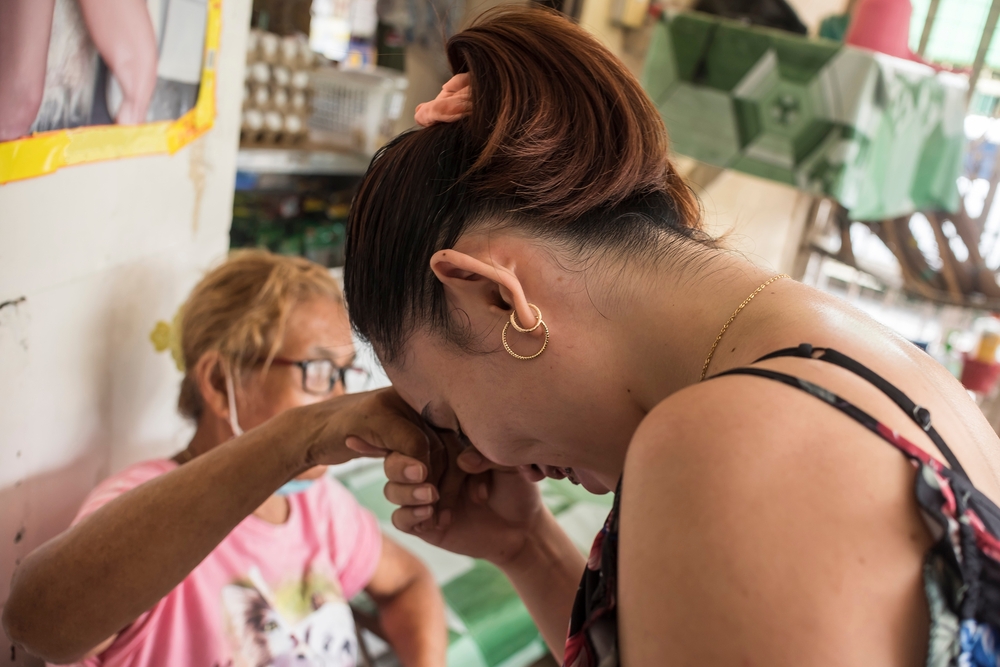
Respecting local culture and customs not only promotes positive interactions but also enhances your safety. Consider these tips to be culturally sensitive:
Dress Appropriately
Research the local dress codes and norms of your destination, especially if you’re visiting religious sites or conservative areas. Dress appropriately and modestly to show respect for the local culture and avoid inadvertently offending others.
Learn Basic Phrases in the Local Language
Learning a few basic phrases in the local language can help you navigate daily interactions and demonstrate your respect for the local culture. Simple greetings, thank you’s, and polite phrases can go a long way in building bridges and fostering positive connections.
Be Mindful of Photography Etiquette
When taking photographs, be respectful of people’s privacy and cultural sensitivities. Ask for permission before photographing someone, especially in religious sites or areas where photography may be restricted. Follow any guidelines or restrictions regarding photography in museums, temples, or other cultural sites.
Follow Local Customs and Traditions
Take the time to understand and respect the customs and traditions of the local community. Observe and follow local practices, such as removing your shoes before entering certain places or participating in cultural ceremonies, to show appreciation for the local culture.
11. Prepare for Emergencies
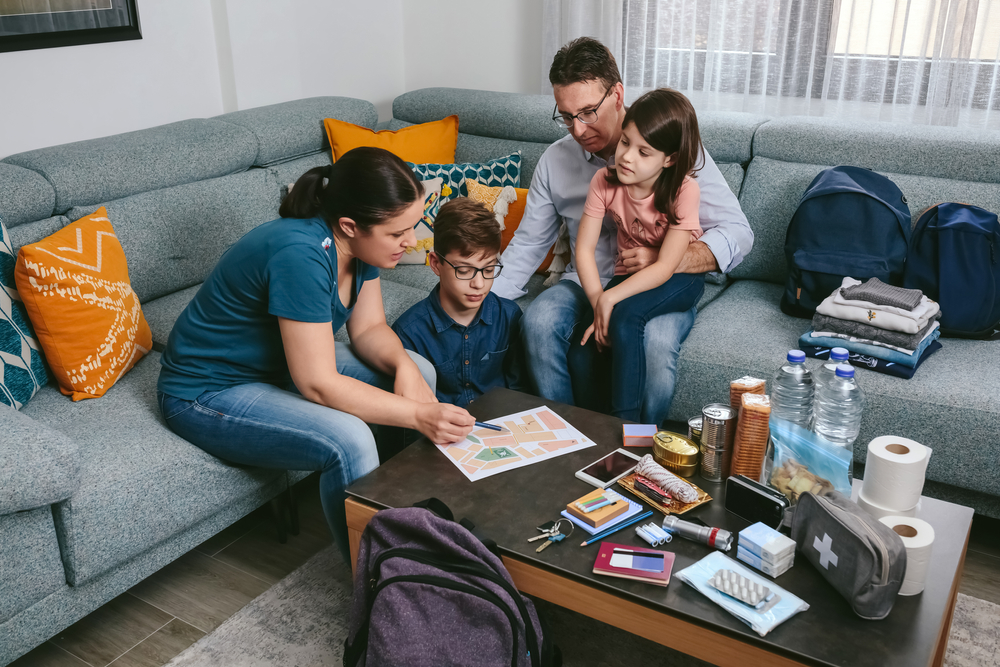
Even with careful planning, emergencies can happen while traveling abroad. Being prepared can make a significant difference in managing challenging situations. Follow these guidelines:
Purchase Travel Insurance
Travel insurance provides financial protection in case of unforeseen events such as trip cancellations, medical emergencies, or lost luggage. Research and purchase a comprehensive travel insurance plan that suits your needs and destination. Familiarize yourself with the coverage details and emergency contact information.
Carry Emergency Contact Information
Save the contact information for emergency services, including local police, ambulance services, and your country’s embassy or consulate. Keep this information readily accessible in case of emergencies. Consider saving the contacts in your phone and keeping a physical copy in a secure location.
Know How to Seek Medical Attention
Research the medical facilities available in your destination and have a plan in place for seeking medical attention if needed. Carry a list of essential medications and any necessary medical documentation, such as allergies or pre-existing conditions. Familiarize yourself with how the local healthcare system operates and what your travel insurance covers.
Stay Calm and Follow Official Instructions
In case of emergencies, it’s crucial to stay calm and follow official instructions and guidance. Monitor local news sources, heed any warnings or evacuation orders, and cooperate with authorities. Use your judgment and prioritize your safety and well-being.
Conclusion
As you prepare to depart from your foreign country, it’s essential to reflect on the valuable lessons learned and the measures taken to ensure your safety. Throughout your journey, staying informed and vigilant as a U.S. citizen is paramount. Be sure to heed travel advisories provided by the U.S. Department of State and maintain open communication with trusted friends or family members. Remember to carry essential items such as bottled water and a copy of your passport, keeping them securely tucked away, perhaps in a fanny pack or back pocket. While exploring different places, remain cautious of potential risks, including motor vehicle crashes and food poisoning, and take extra precautions in emergency situations. Whether facing the threat of terrorist attacks or petty theft, your safety should always be the priority. In case of any emergency, locate the nearest U.S. embassy or police station and seek medical care promptly. By exercising good judgment and following these important safety measures, you can navigate international travel with confidence and peace of mind, forging unforgettable memories while safeguarding your well-being.